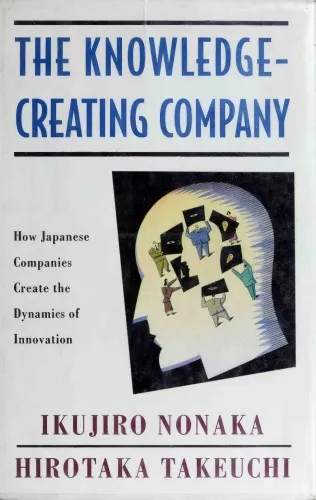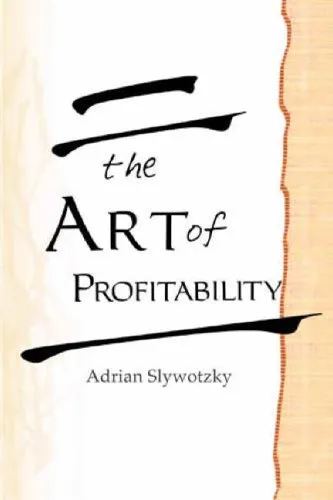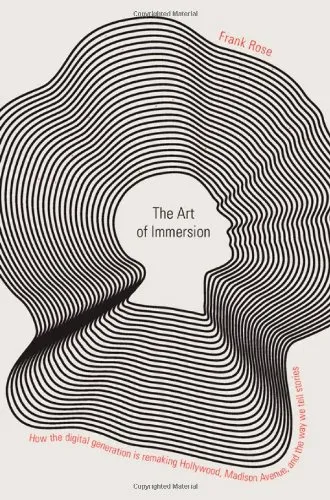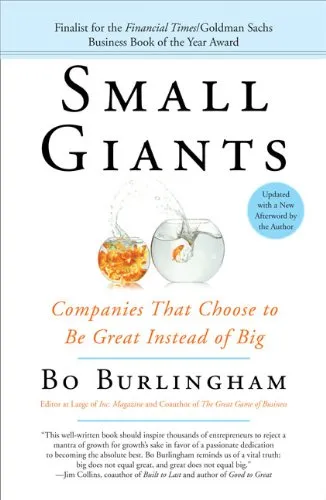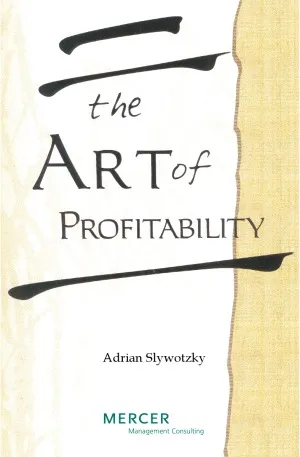The knowledge-creating company : how Japanese companies create the dynamics of innovation
4.6
Reviews from our users

You Can Ask your questions from this book's AI after Login
Each download or ask from book AI costs 2 points. To earn more free points, please visit the Points Guide Page and complete some valuable actions.Related Refrences:
To explain how this is done - and illuminate Japanese business practices as they do so - the authors range from Greek philosophy to Zen Buddhism, from classical economists to modern management gurus, illustrating the theory of organizational knowledge creation with case studies drawn from such firms as Honda, Canon, Matsushita, NEC, Nissan, 3M, GE, and even the U.S. Marines. In addition, the authors show that, to create knowledge, the best management style is neither top-down nor bottom-up, but rather what they call "middle-up-down," in which the middle managers form a bridge between the ideals of top management and the chaotic realities of the frontline.As we make the turn into the twenty-first century, a new society is emerging. Peter Drucker calls it the "knowledge society," one that is drastically different from the "industrial society," and one in which acquiring and applying knowledge will become key competitive factors. Nonaka and Takeuchi go a step further, arguing that creating knowledge will become the key to sustaining a competitive advantage in the future. Because the competitive environment and customer preferences change constantly, knowledge perishes quickly. With The Knowledge-Creating Company, managers have at their fingertips years of insight from Japanese firms that reveal how to create new knowledge organizationally, and how to exploit it to make successful products, services, and systems.Two leading Japanese business experts, Ikujiro Nonaka and Hirotaka Takeuchi, are the first to tie the performance of Japanese companies to their ability to create new knowledge and use it to produce successful products and technologies. In The Knowledge-Creating Company, Nonaka and Takeuchi provide an inside look at how Japanese companies go about creating this new knowledge organizationally. The authors point out that there are two types of knowledge: explicit knowledge, contained in manuals and procedures, and tacit knowledge, learned only by experience, and communicated only indirectly, through metaphor and analogy. U.S. managers focus on explicit knowledge; the Japanese, on the other hand, focus on tacit knowledge. And this, the authors argue, is the key to their success - the Japanese have learned how to convert tacit into explicit knowledge. Read more...
Free Direct Download
You Can Download this book after Login
Accessing books through legal platforms and public libraries not only supports the rights of authors and publishers but also contributes to the sustainability of reading culture. Before downloading, please take a moment to consider these options.
Find this book on other platforms:
WorldCat helps you find books in libraries worldwide.
See ratings, reviews, and discussions on Goodreads.
Find and buy rare or used books on AbeBooks.
1332
بازدید4.6
امتیاز0
نظر98%
رضایتReviews:
4.6
Based on 0 users review
Questions & Answers
Ask questions about this book or help others by answering
Please login to ask a question
No questions yet. Be the first to ask!
